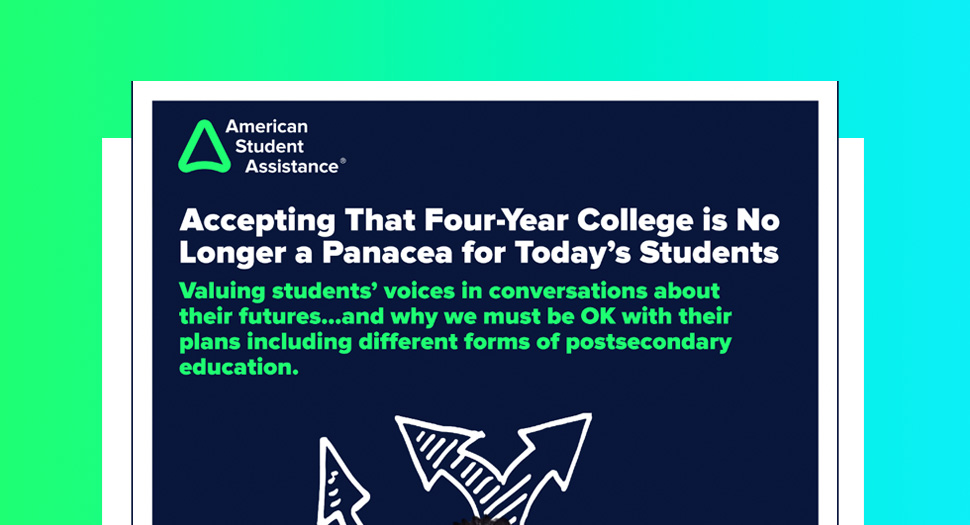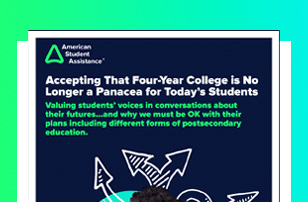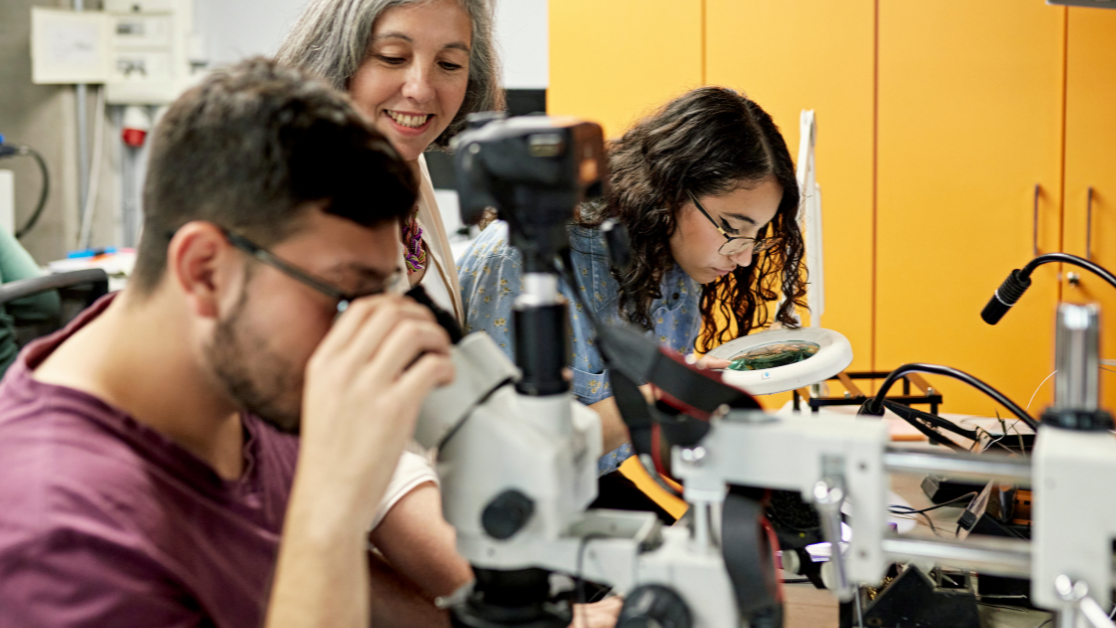Labor market data and previously reported research confirm that the skills required of the modern workforce have changed. The new foundational skills of the modern economy include greater digital savvy, increased business acumen, and more versatile human and team-centered workplace competencies. These skills generate substantial salary premiums for the students and workers who master them, and demand for these skills is large and growing at all levels of educational attainment.
Middle and high schools that embrace these skills will be setting their students up for future success. However, the nature and prevalence of education in these new foundational skills during middle and high school is unclear. In this report, American Student Assistance and Burning Glass Technologies present the view from the schoolhouse: What is the value that students can gain from mastering these new foundational skills, how do educators understand the value to students that these skills offer, and how do educators feel about the quality of education in these skills that their schools provide.
Why Now?
The crises of the moment underscore the importance of empowering students with the new foundational skills of the modern economy. COVID-19 has placed a strain on communities, workplaces, businesses, and education. The pandemic has accelerated digitization and required students and workers to be more resilient, creative, and coordinated than at any time in recent history. The economic shutdowns have required businesses to adapt to difficult terrain. Students, workers, and companies endowed with the new foundational skills of the modern economy are more likely to weather this storm. Unfortunately, just as the adverse economic effects of COVID-19 are felt unequally along familiar racial, ethnic, socioeconomic, and class lines, so too do these lines often divide access to educational opportunities. Recent social movements and civil unrest are responding to these inequalities, and the dual economic and health crises are exacerbating them. There is therefore an urgent need to lift up the strategies and practices that will close these gaps. Equitable education in the new foundational skills during the middle and high school grades is an auspicious step toward reversing these trends.





